Tourism and the Coral Reefs of Cuba
Travel to Cuba is so new for Americans that many are unaware the island has some of the most beautiful beaches and waters in the Caribbean. Americans can not visit the country as tourists, so making plans to wander the beautiful coastline is not even on their radar screen. YET. Even though the door for travel has been opened, US citizens must still fit into one of the twelve designated categories laid out, and sunbathing snorkeler is not one of them. The biggest worry of environmentalists is what will happen when that changes. Can the impact be sustainable or will it destroy the culture and coral reefs of Cuba?
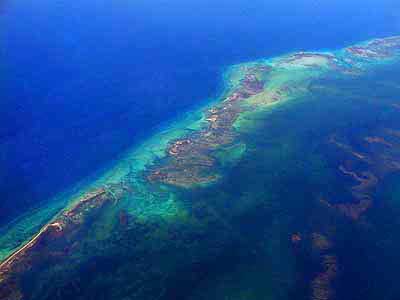
Cuba occupies an interesting junction of the Atlantic, Caribbean Sea and the Gulf of Mexico. About 70 miles off the southern coast is a group of hundreds of small, undeveloped islands edged with red mangroves and white sandy beaches. This pristine habitat, the Jardines de la Reina-Queen’s Garden-is today considered one of the healthiest coral reef habitats in the world. Encompassing over 1,000 square miles the health of this pristine ecosystem is interconnected to the rest of the Caribbean. The current from this area travels north and as an experiment in 1991 proved, flotilla released from this area can reach the Palm Beaches in just 46 days. The health of the Queen’s Garden will affect much of the surrounding area. The offspring and larvae from this marine environment travel on the ocean currents throughout the area.

Bio diverse marine life in Jardines de la Reines via Sea Thos Foundation.
Twenty years ago, the Jardines de la Reina was in terrible shape. Trawlers had over fished the area and the reef was almost devoid of wildlife and healthy coral. Biodiversity was practically non-existant. In 1997 the Cuban government banned commercial fishing and created one of the largest marine parks in the Caribbean. The fact that there was very little boat traffic and thus very little of the pollution it creates, added to the reef’s healthy recovery. Fewer than 3,000 divers visit the garden every year. Catch and release fishing is limited to a few hundred.
But alas, all is not good news. More than once I heard the word tsunami spoken when officials, architects or city planners talked about the coming changes. Now that U.S. and Cuban relations are thawing, the result could be a “tourism tsunami,” the Miami Herald reported. I’ve never known a tsunami to be a good thing. Cruise ships are indicating a large increase in bookings by Americans. People-to-People programs on board are providing the ‘educational’ opportunity for tourists to visit up to four different ports aboard the vessels. In addition, to meet farming needs, I wonder how much of the land will be developed for agriculture, increasing the possibility of runoff from pesticides and fertilizer.
I can’t tell you how hard it was to be sitting on a bus, watching the ocean pass by when visiting Cuba; we were not ‘allowed’ to stop. It is even harder for me to imagine that this will last much longer. Unmanaged development, tourism and fishing have had a devastating effects on other coral reefs around the world. Hotels are clamoring to build new resorts and take part in the infrastructure that is taking Cuba by storm. US senators from both sides of the divide were visiting during the same time I was, each angling for what their state could receive out of the new trade arrangements. One thing everyone I spoke with agrees on-Now that the doors are open, there is no turning back. The tsunami is coming. Tourism will provide an opportunity to improve lives in Cuba. Will sustainability be apart of the equation? How growth is handled and managed will determine what cost to the environment and Cuba’s pristine reefs the tourism tsunami will have.


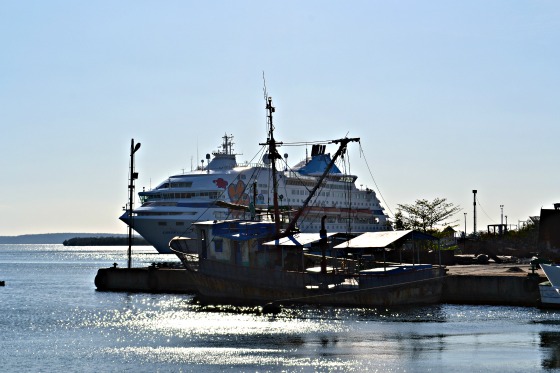























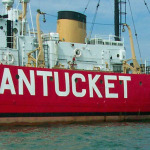

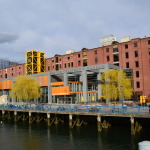





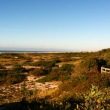



Ahhhh, I hate this story. You’re right and I suppose I don’t even like being a human being when i’m kin to the destroyers. I feel sad and complicit as I make gas guzzling choices because no legularure has yet addressed the green house effect. And how commendable that Cuba’s government made choices to care for the reef but yes, the human beast consumes therefore he exists. Sigh. Well written Allison.
Love,
Shalagh
Shalagh-I think it’s all about building awareness and taking little steps to make a change. We can all make decisions that positively impact the environment every day.I’m sorry the post brought you down, sometimes I feel the same way. But then I decide to instead spread the word, and hope someone like you is listening.I thank you for the compliment about my writing.
I love Cuba. It’s such a beautiful place with so much history. I really hope over-development doesn’t start to ruin the natural beauty as it’s such a wonderful place. There are a ton of resorts already though, but most seem to be small-scale.
Megan-I’m really feeling like I need to do a repeat visit by myself and explore much more. We had an intense overview with tons of information, but I feel like I just scratched the surface.
I really hope it stays undeveloped as I saw it in 2007 when I visited Cuba. Born in an ex-communist country, lots of things looked familiar there, a little bit more extreme but what amazed me the most was how joyful people were and how much they were helping each other – something that I remember from childhood and that is long gone in my country unfortunately. I really hope Cuba conserves that for longer than we did :))
Your ost has hit the nail on the head, Alison. Development almost always comes with a downside, and the ‘tsunami’ of US tourists bound for Cuba will undoubtedly cause a rush on tourism development that may harm the health of the natural landscape. That has happened in so many parts of the world.
I just got back from Cuba and , like you, nearly burst from my desire to get out off the bus and in to the water! The cruise ships coming in droves worries me too but I personally think that infrastructure can’t be overnight. I’ve been reading some legit-seeming articles that 2015 may see the bleaching of as many as 90% of the world’s coral reefs and am planning to snorkel as much as I can this year! I’d be curious to see if my comments on going to Cuba mess with your impressions.
I think it’s wise to be concerned. The flood gates are definitely open and it’s hard to pass up tourism dollars when so many are in desperate need. Perhaps they can fund preservation efforts to safeguard the priceless natural treasure.
Yes, I hope that Cuba continues to protect its natural environment and will focus on promoting sustainable tourism projects. While historically known as the “accidental eden” of the Caribbean, the government has done some work researching legal frameworks that can help provide strong environmental laws. Hopefully these can be implemented quickly.
What an interesting experience. I have visions of this “tsunami” of uninformed tourists paying no attention to the “newness” of tourism in Cuba. There is a huge learning curve on both sides of the tourism issue.
That white sand image is lovely. I always enjoy hearing about/seeing picture of Cuba.
I really appreciate the research behind this story, and its timeliness. Are details via the Jardines de la Reina administration of ?? Thanks, Alison.
Such a delicate situation, I hope they can benefit from tourism while maintaining the integrity of the reefs and wildlife.
I hope there will be responsible tourism…seems like the industry has been making some strides.
I haven’t been to Cuba yet. The closest was my snorkeling trip to Key Largo, and some diving in Cozumel – they told me if the current carried me away I would wind up in Cuba!